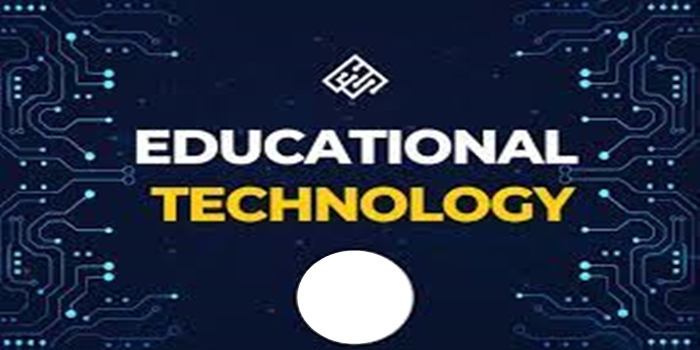In this article, we discussed the meaning of educational technology, digital learning tools, we also talked about the uses and types.
Definition
Educational technology, or EdTech, refers to tools, technologies, and resources used to improve learning experiences. It includes hardware like computers and tablets and software like learning management systems (LMS) and virtual reality environments.
Educational Technology is the field of study that considers the process of analyzing, designing, developing, implementing, and evaluating the instructional environment, learning materials, learners, and the learning process in order to improve teaching and learning.
Digital learning tools are technologies, applications, or websites that help students and teachers learn and communicate. They can be retrieved via the internet and can be used at home or in a school setting.
Digital learning tools can help students: Access information, understand content, and Develop competencies.
Digital learning tools can help teachers: present information and facilitate learning.
What are Digital Education Tools?
Digital Education Tools are technology-based tools that can facilitate learning and teaching. Examples include:
Online course platforms
Virtual classrooms
Digital textbooks
Learning management systems
Digital assessment tools for special education students
These tools can be used to deliver content, measure student progress, and provide feedback.
The Uses of Digital Learning Tools
Digital learning tools can be used in many ways, including:
Collaboration
Students can work together with their teachers and other students to share and comment on materials.
Personalized learning
Teachers can use digital tools to provide individualized instruction that meets the needs of each student.
Educational games
Video games can be engaging and motivating for students.
Learning management
Learning management systems (LMS) can help educators distribute work, track progress, and manage lessons.
Better engagement
Interactive whiteboards, educational apps, and gamified learning tools can make lessons more engaging and interactive.
Digital literacy
Students can learn to navigate platforms, use productivity tools, collaborate online, and communicate effectively in digital environments.
Immediate feedback
Students can receive immediate feedback on their performance, which can help them identify strengths and weaknesses.
Current information
Digital learning tools can be updated quickly to provide learners with access to current and relevant content.
Types of Digital Learning Tools
There are many types of digital learning tools, including:
Interactive websites and platforms: Offer a variety of learning materials
Learning apps and software: Installed on computers or mobile devices
Online video tutorials and lectures: Allow students to connect with subject matter experts
E-books and digital textbooks: Electronic versions of printed books that can be read on computers, tablets, or e-readers
Gamified learning tools: Use game elements to make learning more engaging
Canva: A free graphic design tool that allows students and teachers to create presentations, posters, infographics, videos, and more
Nearpod: Allows students to respond to instruction in real time by answering questions, asking further questions, or completing on-screen tasks
Online textbook marketplaces: Allow students to buy or rent digital copies of educational resources
Learning analytics: AI helps analyze data from online learning portals, classroom attendance, and grades.
Conclusion
Digital learning tools are a key part of education in the 21st century. An online teacher tool can be best defined as any program, website, or application that will enhance teaching and learning. Teachers need to explain themselves with the large change of online teaching tools to control what programs, apps, systems, and websites will best suit their student’s needs.

